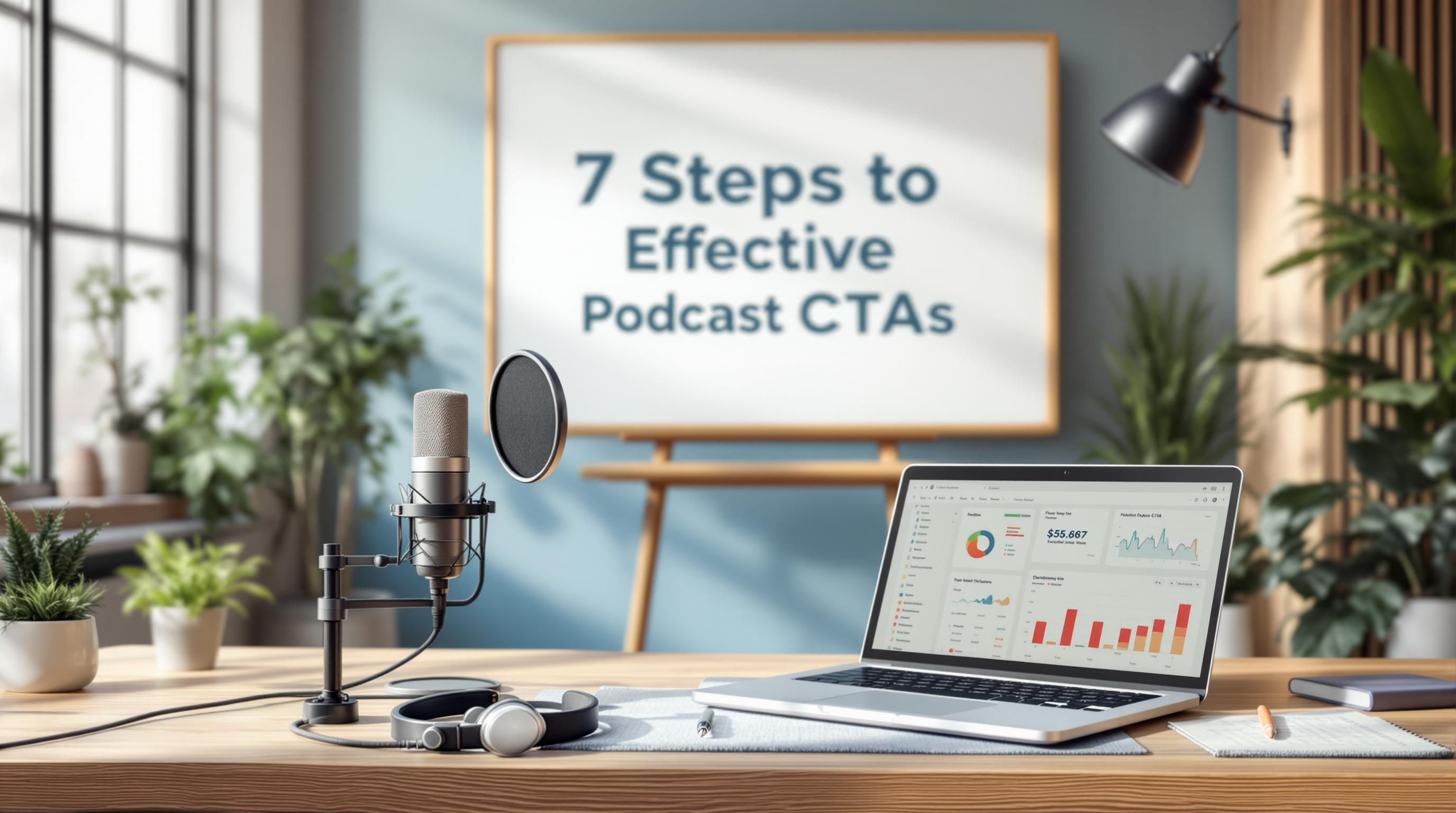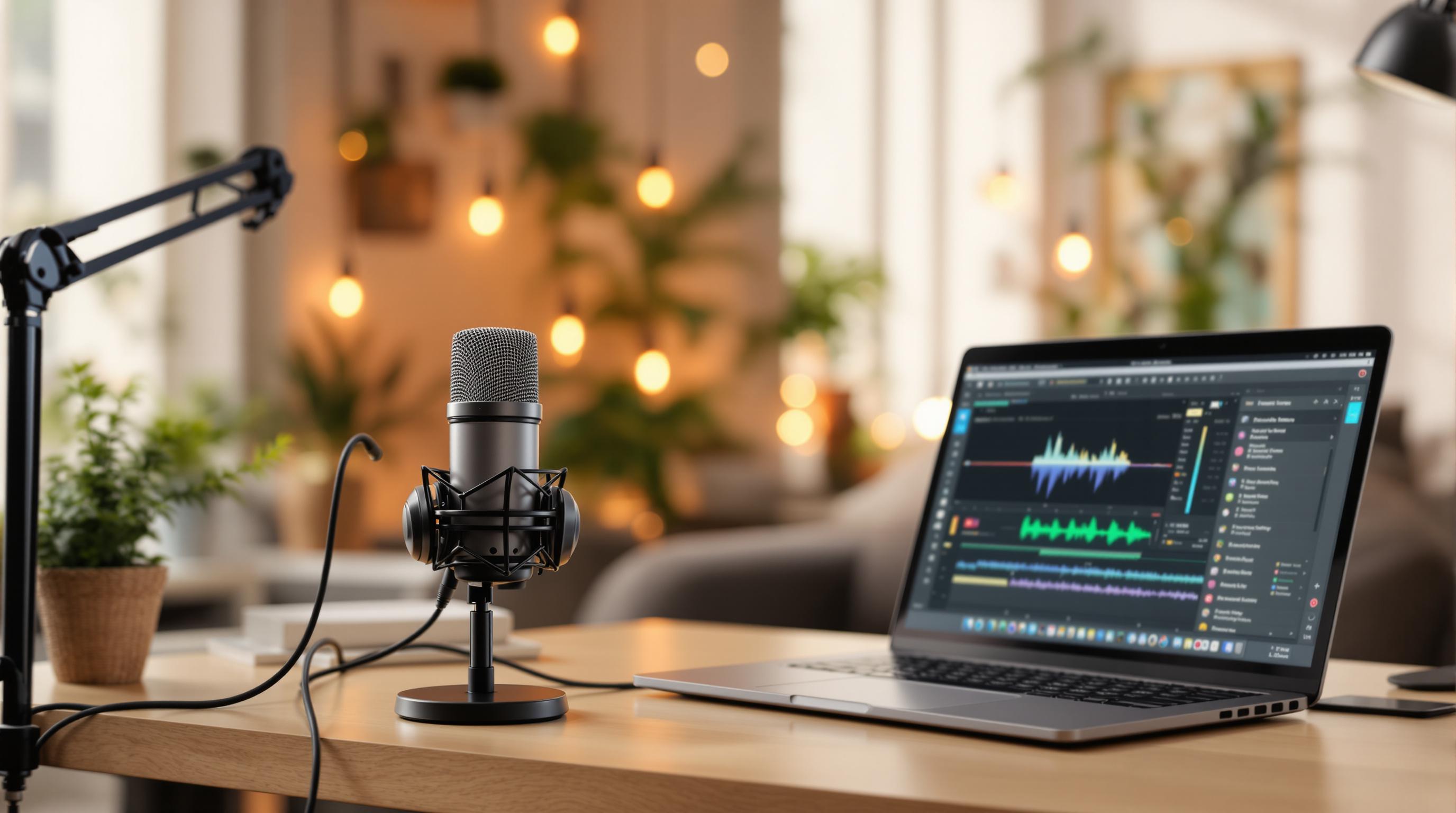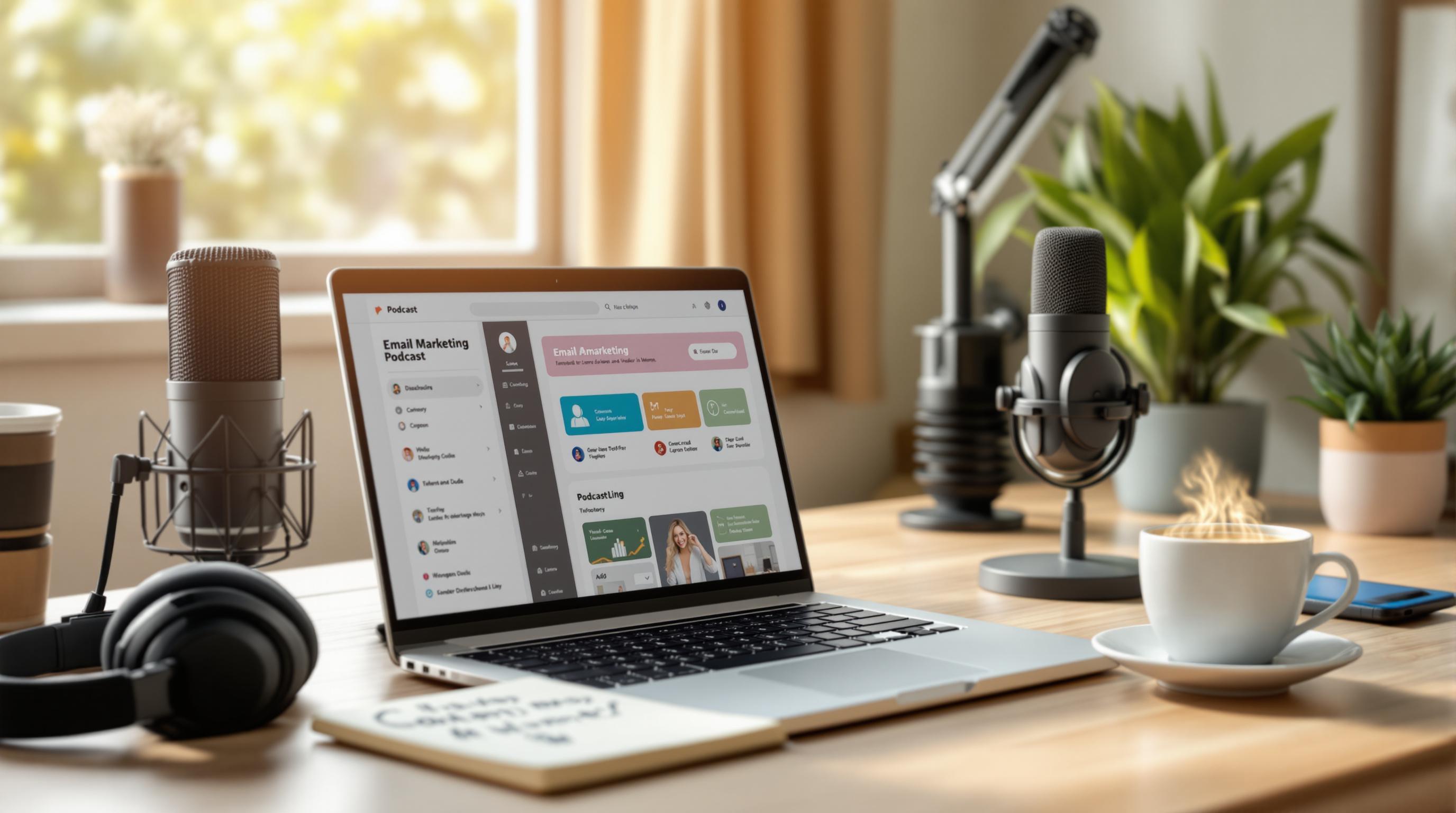Want your podcast guests to shine? Here's how to prep them:
- Research your guest thoroughly
- Provide clear tech instructions
- Explain your show's format
- Have a pre-interview chat
- Send a full info pack
Why bother? Good prep leads to better conversations, which keeps listeners hooked.
Here's a quick breakdown of each tip:
| Tip | Key Points |
|---|---|
| Research | Look into career achievements, current work, past interviews |
| Tech | Suggest equipment, give sound tips, recommend recording spots |
| Format | Outline show structure, duration, special segments |
| Pre-chat | Build rapport, check topics, answer questions |
| Info pack | Include show details, guest intro, possible questions, recording info |
Remember: These tips are flexible. Adapt them to fit your unique podcast style and needs.
Related video from YouTube
Research Your Guest Well
Knowing your guest inside and out is key to a great podcast interview. Here's how to dig deep:
Career Achievements
Look into your guest's work history. What big wins have they had? If you're interviewing Elon Musk, you'd want to know about PayPal, Tesla, and SpaceX.
Current Work
Find out what your guest is up to now. New product? Book in the works? This info helps you ask timely questions.
Past Podcast Interviews
Listen to other shows your guest has been on. It helps you:
- Ask fresh questions
- Get their speaking style
- Find new angles
Travis Brown from HitPublish nails it:
"Our job as interviewers is to specifically pull out information that hasn't been shared on other shows."
Make Good Questions
Use what you've learned to craft questions that matter:
| Do | Don't |
|---|---|
| Ask about recent projects | Rehash old interviews |
| Explore new angles | Stick to surface-level topics |
| Tailor questions to your audience | Ask generic questions |
Good prep leads to great conversations. Serena Louth, co-host of the Kitchen Club podcast, puts it this way:
"It's so nice talking to you when you know so much about our podcast. We've spoken to so many people who know nothing about what we do. It's clear they haven't listened to our show before speaking with us."
2. Give Clear Tech Instructions
Want your guests to sound great? Give them these simple tech tips:
Needed Equipment
For good audio, guests need:
- A decent mic (USB or XLR)
- Headphones
- Pop filter
- Quiet space
Suggest budget-friendly mics like the Samson Q2U ($70) or ATR2100x ($50). These work with USB and XLR, perfect for beginners and pros.
Sound Better Tips
Tell your guests:
- Use headphones to catch issues
- Keep the mic at mouth level, a few inches away
- Stay consistent with mic distance
- Use a pop filter for cleaner sound
- Mute all device notifications
- Close windows to block noise
Where to Record
Guide guests to pick the right spot:
| Good Spots | Bad Spots |
|---|---|
| Carpeted rooms | Bathrooms |
| Home offices | Kitchens |
| Living rooms | Outdoors |
| Bedrooms | Cafes |
Soft furnishings? Great. Hard surfaces? Avoid them.
"You don't need a pro studio for great audio anymore. There are tons of ways to record high-quality sound at home now."
3. Explain How the Show Works
Let's walk through what your guests can expect during the interview. This helps them relax and keeps things running smoothly.
Show Parts
Here's a quick breakdown of our podcast structure:
| Section | Purpose |
|---|---|
| Intro | We'll introduce you and the topic |
| Main Content | This is where we dive into the interview |
| Conclusion | We'll wrap up and thank you for your time |
How Long It Takes
We're looking at about 45 minutes total. That's 35-40 minutes of chat, with some wiggle room for any tech hiccups.
Special Show Parts
Heads up: We've got a few unique segments:
- A rapid-fire question round
- Some questions from our listeners
- Maybe even a bit of role-playing
What We Need from You
To make the show great:
- Just be yourself and chat openly
- Share some personal stories if you can
- Don't hesitate to ask if something's not clear
Sam Datta-Paulin, who used to teach journalism and now produces at Lower Street, puts it well:
"Making your guest feel comfortable should be a top priority, especially in the lead-up to the interview."
sbb-itb-cdb7710
4. Talk Before the Interview
A quick pre-interview chat can make a world of difference. Here's why:
Quick Chat or Email
Set up a brief call or send an email to your guest. This helps:
- Build rapport
- Calm nerves
- Set expectations
Matthew Brown from Inner Ear says:
"You need to have a pre-interview call. Every show holds a pre-interview with guests. Trust me: you're not better off than all of them."
Check Topics
During your chat:
- Outline main talking points
- Confirm they match your guest's expertise
- Discuss any off-limits topics
This keeps you both on the same page and avoids awkward moments.
Answer Questions
Let your guest ask questions. They might wonder:
| Question Type | Examples |
|---|---|
| Technical | "What equipment do I need?" |
| Format | "How long will we talk?" |
| Content | "Any topics I should prep for?" |
Answering these helps your guest relax.
Get to Know Each Other
Spend a few minutes on small talk. It's not wasted time – it builds relationships. A PR Manager notes:
"Our clients always come out of the pre-interview excited and confident about being on the show."
Don't ask your main interview questions now. Save those for the real deal to keep things fresh.
5. Send a Full Info Pack
Want to impress your podcast guests? Send them a full info pack. It's a simple way to help them prep and show you mean business. Here's what to include:
About Your Show
Give guests the lowdown on your podcast:
- Show name and tagline
- Who listens
- How episodes work
- Listener count
Guest Intro Draft
Write up how you'll introduce your guest. Let them check it over. This saves time and avoids awkward moments during recording.
Possible Questions
Share some questions you might ask. It helps guests prepare without sounding too rehearsed. For example:
| Question Type | Example |
|---|---|
| Opening | "What got you into [topic]?" |
| Main Content | "Can you explain [specific process]?" |
| Closing | "What's next for you in [field]?" |
When and Where to Record
Be clear about the details:
- Date and time (with time zone)
- How long it'll take
- Where you'll record (like Zoom or Riverside.fm)
- Any tech checks needed beforehand
Make It Fit Your Show
Your info pack should match your podcast's vibe. Casual show? Keep it light. Formal podcast? Stick to a pro tone.
"We send a link to our Riverside.fm studio in our info pack. We also throw in tips like 'Use Chrome' and 'Ethernet is best if you can,'" says the host of "Workflows" podcast.
Wrap-up
Prepping podcast guests isn't optional. It's crucial for making your show stand out.
Here's a quick recap of our 5 tips:
- Research your guest
- Give clear tech instructions
- Explain your show's format
- Have a pre-interview chat
- Send a full info pack
Why bother? Good prep = better conversations. And that's what keeps listeners hooked.
But here's the thing: these tips aren't rigid rules. Adapt them to fit your show.
Take the "Workflows" podcast, for example. They include their Riverside.fm studio link in the info pack, along with practical advice like "Use Chrome" and "Ethernet is best".
The goal? Set the stage for a great chat. Use these tips as a starting point, but add your own spin.
Your podcast is one-of-a-kind. Your prep should be too.
FAQs
How to prepare for a podcast as a guest?
Want to nail your podcast interview? Here's how to get ready:
1. Listen to the show
Tune in to at least two full episodes. You'll get a feel for the show's vibe and spot any recurring segments.
2. Know your audience
Check out podcast reviews on iTunes or Chartable. Figure out who's listening and why they tune in.
3. Prep your stories
Have three solid anecdotes ready to go. Focus on real-life experiences that drive your points home.
4. Tech check
Grab a decent mic or headset. Test your gear before the big day.
5. Do your homework
Fill out any pre-show questionnaires. Research the host and recent guests.
6. Be yourself
Keep it natural and conversational. Ditch the script and just chat.




